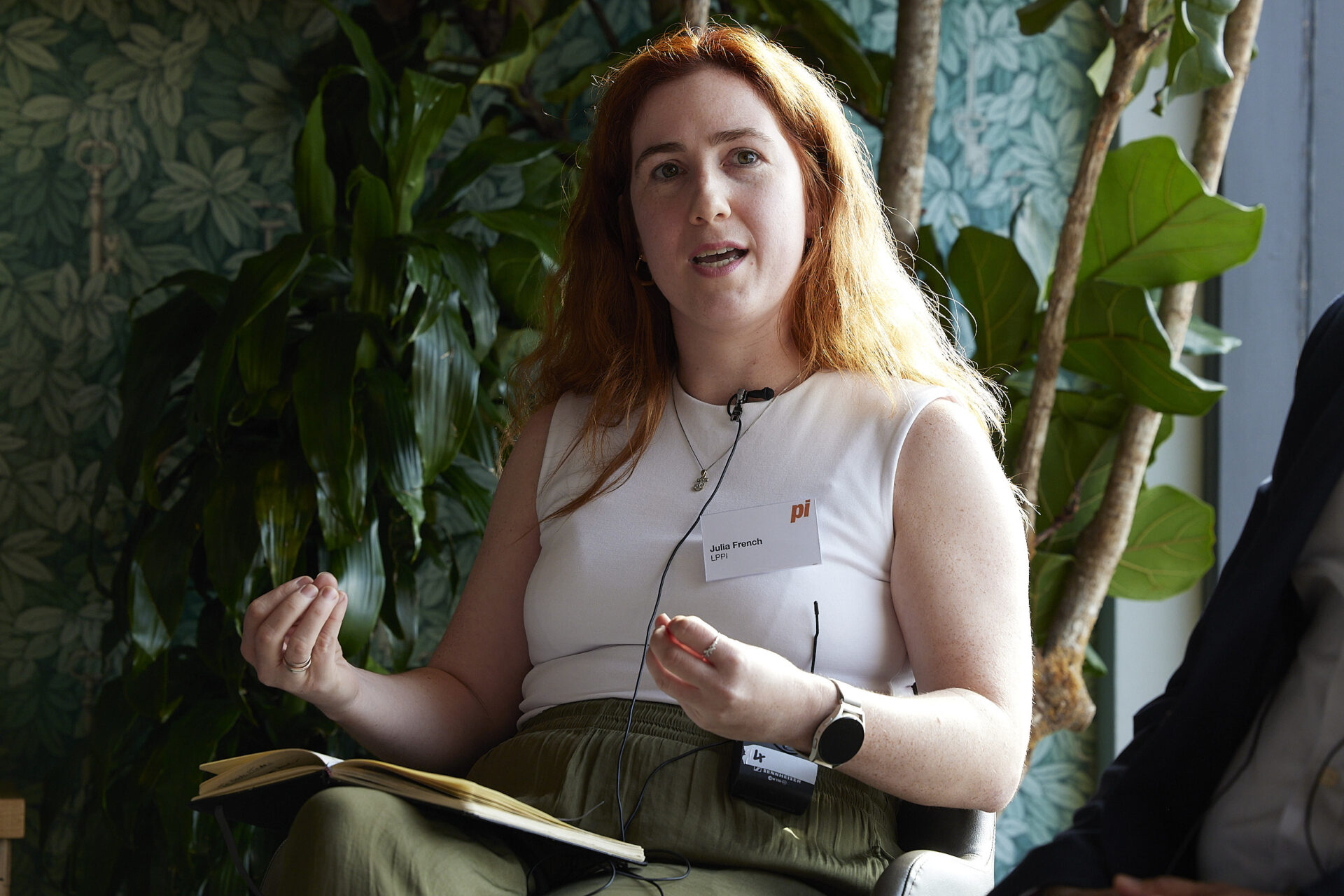One of the big issues for institutional investors pursuing a net zero policy is the much-discussed backlash against it as an investment approach. This is found most strongly in the US, where President Trump described net zero as a “con job”.
This issue, and its many challenges, took centre stage at the recent portfolio institutional ESG Conference: Sustainable strategies for a divided world.
“We are currently trying to distinguish what is the noise from the signal and adjust accordingly,” noted Julia French, responsible investment manager at Local Pensions Partnership Investments (pictured). “From our position within the LGPS we have to deal with the UK political landscape as well as the US through our investments – and the nature of the backlash in each is very different – so that is leading us down different routes.”
“In the US there is a huge ESG pushback,” French added. “It is focused on climate change and investor engagement, – so reporting is definitely taking a step back on both those fronts.”
But for all that, the backlash has not really taken hold, argues French. “You are seeing a lot of anti-ESG shareholder proposals, but they are averaging 98% opposition – so there isn’t a massive industry support for that anti-ESG narrative.”
In a similar, unconcerned way, Jennifer Devine, head of Wiltshire Pension Fund, highlighted how asset owners are keeping calm, focusing on their mission and duty and carrying on.
“We are thinking on a 100-year time horizon,” she said. “Although there is a bit of a backlash going on, we have to think about our members best needs – and that is looking well into the future. That includes getting the best risk-adjusted returns. What is best for them in general, which is a key part of our fiduciary duty. So the way we go about ESG is doing the best for our members,” Devine said.
Wiltshire Pension Fund has been using climate-scenario modeling to assist in this. “We have been looking at things under the bonnet. And we have always made decisions on a data-driven basis. We have recently redone our climate-scenario modeling,” she said.
This was an update from when Wiltshire last did their modeling in 2020.
“Modeling does give that compelling evidence that the fund will be in a much better financial position in an orderly transition. So we have to invest for that,” added Devine.
Strong commitment
Douglas Clark, head of investment research and solutions at Brightwell, focused on the different net-zero alliances and how the backlash has had an impact on them, resulting in diverse outcomes.
“The Net-Zero Asset Owner Alliance has not suffered the same issues that have impacted the net-zero asset manager initiative.”
He noted two reasons for this. “The asset owner alliance largely formed of European asset owners – only 10% or 15% are US based – so that European focus helps. Second, asset owners inherently have only one client constituent base compared to asset managers who are serving multiple clients or stakeholders.”
Therefore Clark made a clear conclusion. “Speaking to peers the commitment to climate remains pretty much in tact, despite the backlash we have seen in the US.”
But Hetal Patel, head of sustainable investment research at Phoenix Group, expressed an element of apprehension. “The Net-Zero Asset Owner Alliance remains in tact, but it is one of those things that I am a little nervous about. We are still in an environment where there is so much backlash and nervousness about net zero that things could unravel quickly.”
Patel noted that generally those that left the now defunct Net-Zero Banking Alliance have expressed an interest in continuing individually to pursue strategies that support the net zero transition and will continue to assist clients with the Net Zero ambitions.
With or without alliances, Patel also noted the importance of effective stewardship in the net zero toolkit but that is introduced new questions for asset owners. “What does success look like? And if you don’t achieve success, what are the measures you are willing to take,” he asked.
The data problem
Another big issue within the pursuit of net zero is the ineffectiveness of the data that exists within the ESG world. It is, for Jennifer Devine, a big problem.
“It is a constant stumbling block. We have more data and I don’t think it is helping. It is becoming more and more confusing,” she said. “So it is hard to make decisions and plot a course through all the noise with the data.”
Looking forward though, Devine expressed optimism at moving to a new pool in LGPS Central. “Joining a new pool that is bigger, there is an opportunity to collaborate and get more capital investments into these areas that could lead to some real impact.”
Clark identified three areas of opportunity for investors going forward: climate adaptation, the power and energy sector, and debt and credit, especially within technology financing.
French concluded on a positive note. “Now that investors are focusing on impact solutions and allocations to support this, there is a much better way to make climate and nature more synergistic,” she said.





Comments